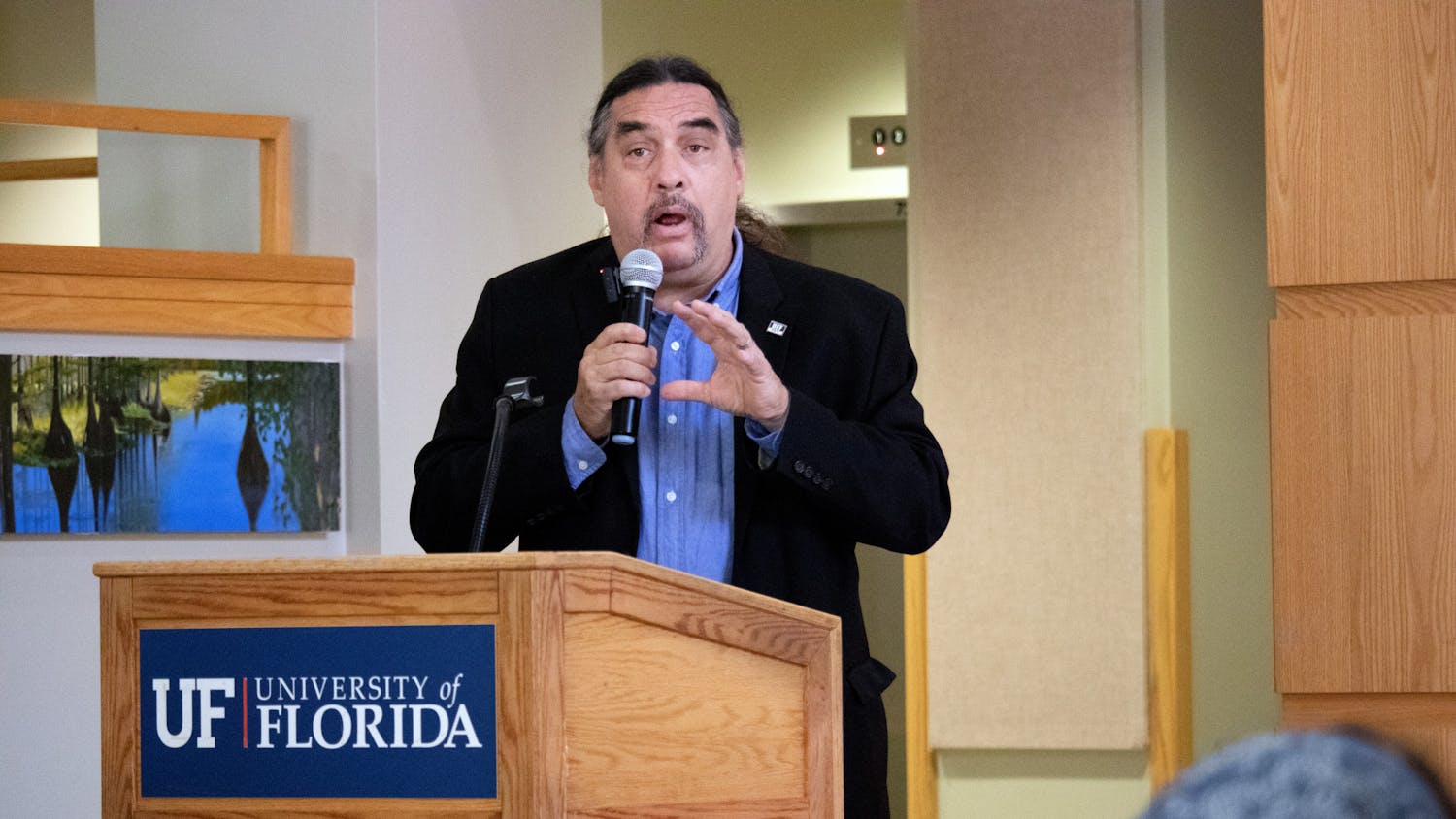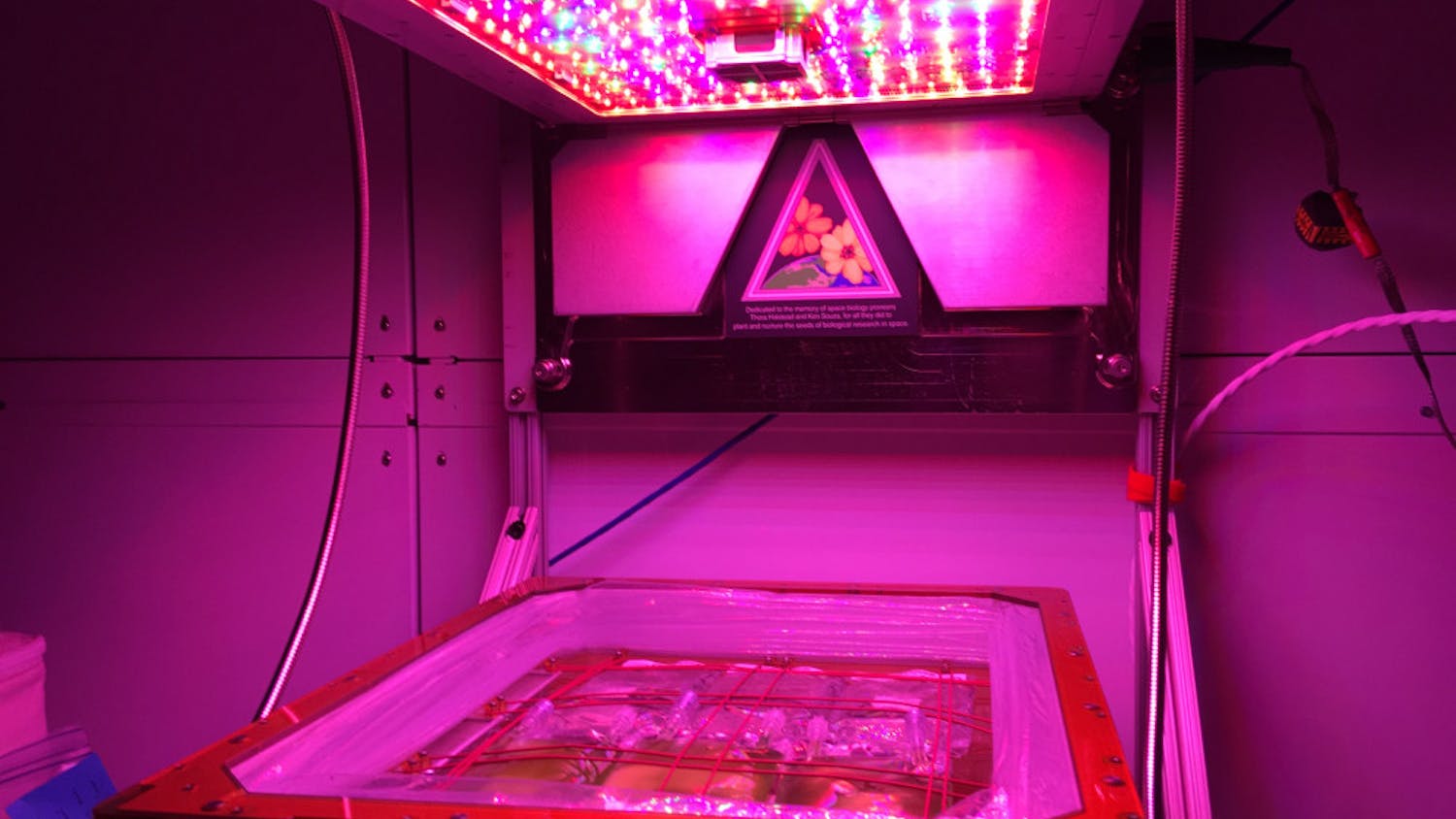Bacteria found to possibly prevent cavities
UF Health researchers have found a possible way to prevent cavities.
Researchers found that a type of bacteria could be given orally, such as in a pill or toothpaste, to prevent cavities. These form when the pH, or acidic level, in the mouth decreases.
The UF College of Dentistry’s Robert Burne, the associate dean for research and chair of UF’s Department of Oral Biology, and Marcelle Nascimento, an associate professor in UF’s Department of Restorative Dental Sciences, became interested in preventing pH levels from falling after finding two compounds that raise pH rapidly: urea and arginine.
“One of the things that we predicted was that as you develop cavities, you would lose bacteria that could help keep the pH neutral,” Burne said.
They studied adults’ and children’s mouths and found those with healthy mouths produced ammonia, which controls the pH level. They found that a new bacteria, A12, stabilized negative bacteria in mouths, he said.
Dr. Burne said he hopes the research helps with managing cavities.
“It would hopefully change the way dentists manage the disease rather than immediately having to go to surgical intervention,” he said.
- Alexa Lorenzo
Algae able to replace traditional biofuels
Researchers have found that algae burns cleaner than traditional biofuels, such as ethanol, which is made from corn.
UF’s Institute of Food and Agricultural Sciences researchers found that oil extracted from algae can be converted to biofuel, or fuel made from organic matter, said Bala Rathinasabapathi, a professor in UF’s Horticultural Sciences Department.
“We think biofuel has a lot of potential,” Rathinasabapathi said. “Algal cells are excellent resources for biofuel.”
To extract the oils from algae, researchers had to starve the algae of nitrogen, he said. When deprived, algae produces more oils.
Rathinasabapathi said we can easily get algae from water in Florida because of the state’s variety of freshwater lakes, rivers and springs. This makes it easier to use algae over other species.
Algae is cleaner because it does not require the land that other biofuels require to grow, he said. It can be grown using salt water and wastewater from sewage.
“We are hoping that some of our research will help us design a new type of algae by engineering certain genes that will create strains that are useful for us,” said Rathinasabapathi.
- Ainesey Foira
Lasers could be used to treat cancer
A UF researcher helped find that lasers could be used to treat cancer by allowing chemotherapy drugs to pass to the brain.
Dr. David Tran, the chief of neuro-oncology in the UF College of Medicine’s Department of Neurosurgery and Dr. Joshua Shimony, an associate professor of radiology at Washington University, found that lasers used against the blood-brain barrier in the brain allow chemotherapy to pass.
The barrier naturally prevents the drugs from entering the brain.
“The blood vessels around the tumor end up being damaged by the laser, and that protection of the blood-brain barrier gets broken down,” he said.
The initial study was conducted on 14 people, Shimony said.
Currently he is working on expanding the study to 40 patients. The research could help treat some forms of cancer.
“What we need to do now is get a grant for a bigger study,” Shimony said. “Hopefully what will show is indeed breaking down the blood-brain barrier increases the effectiveness of the chemotherapy and allows us to cure more patients.”
-Matthew Gorwitz





